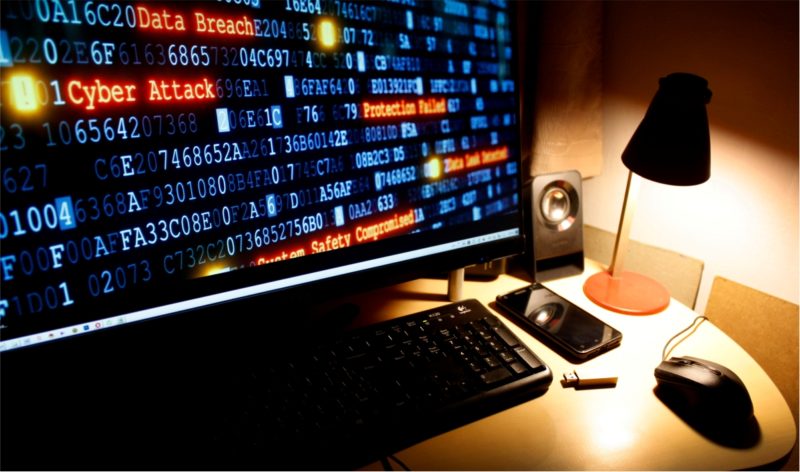There is no doubt that business information, with all sizes, is an irreplaceable good, which in case of loss, diminishes its competitiveness and certainly financial losses. In this sense, investing in internet security for companies, especially for the use of employees, becomes increasingly necessary.
According to the Cybercrime Magazine portal, cyber crime will cost the world $ 10.5 trillion annually by 2025 , so these estimates do not grow in the coming months, it is important to read this article carefully.
The key point here is the role of the employee in this process, which is by passage, is a determining factor in the vast majority of cases of data security breaks in companies, as you will see in the next lines.
What is the employee's role with the company's internet security?

As we saw earlier, the attack forecasts are not encouraging. The growth of these numbers is due to the fact that digital criminals are changing their targets. Briefly, instead of exposing themselves by directly attacking organizations, in which they know that there are many mechanisms of protection and detection implemented, attack the weaker link in the chain, the user, in this case, the employee.
Examples of often small error attacks from employees have been reported countless times.
To make you better understand, I listed the main reasons why employees are directly responsible for the company's internet security.
1. Email opening
Still widely used by companies, the email is not first in this list by chance. The opening of emails containing malicious links, better known as phishing, is giant.
Using various tricks to persuade the employee to click on the email link, the criminal obtains confidential data from the employee, and in many cases of the company itself.
Nowadays, cybercriminals use social networks to collect relevant information, such as occupation, address, friends and tastes, about their targets in order to use it in social engineering attacks. This information is used to induce the employee to find that the email he has just received is true.
In addition, there is a new attack, widespread in recent months, which combines shipping or fake emails and a voice call. This attack is called Vishing, and uses social engineering as a success factor for attacks.
2. Social networks
My 78 -year -old grandmother uses Facebook, Instagram and WhatsApp. It also watches religious videos on YouTube on your SmartTV (seriously). If even a senior lady, who at the height of her joviality he heard only radio and in poor quality, why think that employees don't use social networks during work?
The detail is not just to use, but the dangers to the company's Internet security that unconnected access can cause.
With the large number of users, the possibilities of hackers to get what they want are bigger on this channel. They then create several fake ads, called Malvertising, which in some way (usually a product well below the usual) induce the customer to click on the ad and provide information such as CPF and credit card data.
Employees on social networks during working hours, especially close to commemorative dates, can cause major problems to the company's internet security.
3. Access to harmful websites
Many websites contain ads, pop-ups and malicious links. Pornography sites for example are full of dangers.
Lay and unprotected users use these websites during work or at times, and endanger the company's information if they make it a device in the company.
Keep controlled employees to the sites considered harmful or usually contain malicious content.
4. Downloads
As I said earlier, fake emails may contain attachments to download harmful content. In addition, by downloading pirate software by employees can cause major internet security problems.
Software with no license of use, with changes in its normal mode of operation, can load safety breaches and other malicious files.
Original programs receive safety updates periodically, seeking exactly to correct problems and news in the world of internet security.
Not maintaining control of employee downloads and software can become the gateway to hackers.
5. SIGHY INFORMATION
Keeping the company's confidential information under employee responsibility may not be very interesting. Imagine that an employee who knows a variety of sensitive information about the company speaks openly about it with his family over the internet. If your mobile phone for example suffers any type of data security problem, the information it has distributed will be available to the digital criminal.
An important employee who has important information about the company, should take extra care with the internet security.
6. Photos in the work environment
It is common for people to publish photos in their work environments, showing their daily lives and their tasks. However, be very careful with that! In a small carelessness, important information about the company can fall into the wrong hands.
Imagine that bank data or passwords are described in a table, printed, on the employee's work table, and this one publishes a photo where this data appears. As I said earlier, hackers study their targets, seeking information to architect their plan in the best way.
Therefore, photos or videos of the workplaces where they have confidential information and data, should be treated very carefully by employees in the company.
7. Transparency in case of problems
Employees often download some malicious file, or install pirate software, and cause problems with your computer or device. Many of them only try to correct the problem momentarily, uninstall the software and follow their work. However, malicious files will hardly leave the device with a simple deletion of a lay user. Certainly the professional responsible for the company's IT systems will have to scan the search for malware installed on the machine and remove immediately.
In cases where there is no such control, the device may be vulnerable for a long time, until the fragility of safety, or in the worst cases, is perceived, suffer a cyber attack.
Guiding employees who in case of systems and software -related problems are important to maintain transparency and inform the responsible professional so that repairs are done as soon as possible.
The weakest link in the chain

Currently many companies are being invaded by simple and not sophisticated attacks. Cybercriminals have used techniques to persuade people to the actions they want. Attacks that could be avoided if users had been trained or control and protection.
Change of behavior or employee, or manager should be considered when there are security problems on the Internet.
Employees will always be the weakest link in jail, and also the biggest target of hackers.
In the Internet Security Guide for companies you will find various ways to identify the company's internet security weaknesses .
I hope I have clarified your questions about the importance of the employee in company data security.
To the next!












1 comment
Comments closed